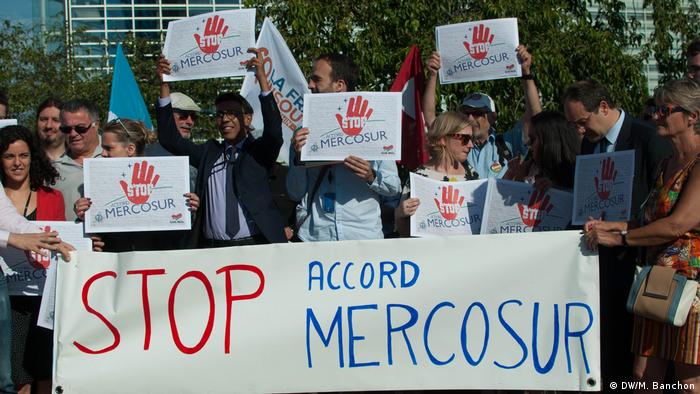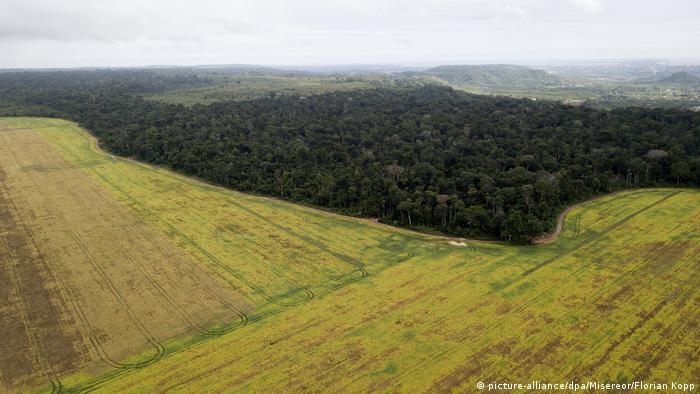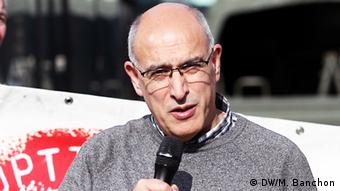Pesticides, hormones, genetic engineering: South America agriculture often does not correspond to the EU standards. Nevertheless, Brussels has concluded a free trade agreement with Mercosur. Be undermined the EU quality standards?

In the EU, the objections to the free trade agreement with the South American trade Alliance Mercosur, the countries of Brazil, Argentina, Paraguay and Uruguay are on the increase. The agreement by the end of June, could dilute, so the critics, the standards for the protection of European producers and consumers. The Worry will not make the ratification process easier.
Spanish citrus growers are calling for special controls on the Import of South American fruits, because they may be infested by certain pests. French farmers demand securities that the approximately 100,000 tons of South American beef, which should annually enter the European market, guaranteed, without hormone additives were produced.
Environmental organisations are calling for a binding mechanism that ensures that no products on the European market, originate from the Amazon region and its production contributes to the destruction of the environment. The list of concerns and demands could be endless continue.
The European Commission is optimistic
The EU-Commission in Brussels confirmed that there will be no softening of the strict EU food safety regulations. Neither the EU nor Mercosur would their labour and environmental standards are lower, so Brussels. Also, the precautionary principle should be adhered to – it stipulates that the two parties may prohibit the import of products of the respective contractual partner, if the adverse effect cannot be ruled out.

Soy fields in Brazil, In the Mercosur countries, genetically modified soy is widely used.
This principle is particularly relevant, since genetically modified soya is prohibited in the EU. In the countries of the Mercosur, it is not only allowed, but in the Form of animal fodder is also widely used. How to be the high EU-Standards in the trade with the Mercosur met?
“This is only possible, if in Argentina, Brazil, Uruguay and Paraguay-with strict controls by national authorities be carried out”, says the German MEP Helmut Scholz to the DW. Scholz is a member of the Parliament’s Committee on International trade. For the position of this control could be no EU funds available, so Scholz. “This would be very questionable.” In its view, the producing countries themselves would have to pay for the area-wide controls. EU aid could only be used to help, for example, “smaller producers in complying with standards”.

Andoni García: “This is brutal”.
Due to the many open questions, the critics of the agreement to more specific statements on the part of the EU-Commission pushing. “To what extent can the Brussels guarantee that the Latin Americans are the same request of their producers, what is here required of us?” Andoni García Arriola from the roof, an Association of Spanish farmers asks. “We want traceability for the entire production chain,” said Garcia to the DW. “The controls must start in the production itself, to ensure that the GM and hormones are not used in animal husbandry.”
“Violent Agreement”
The assurances that there will be no change to the EU Standards, nothing, are, in his view, is pure hypocrisy. “This massive Import of meat from the Mercosur countries is a major threat to sustainable livestock farming in Europe”, complains García and refers to the Paris climate agreement, which is actually a reduction in mass animal husbandry. “Because of the preferred business model, this agreement is brutal,” stresses García. The members of the European Parliament Helmut Scholz expressed cautious: “We must first study the full Text of the agreement. I am, however, somewhat skeptical as to whether it provides actually effective sanction mechanisms for breaches of the food safety and environmental standards.”